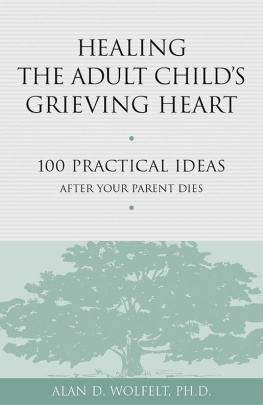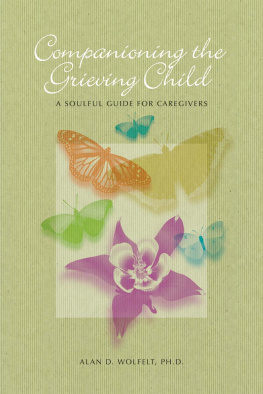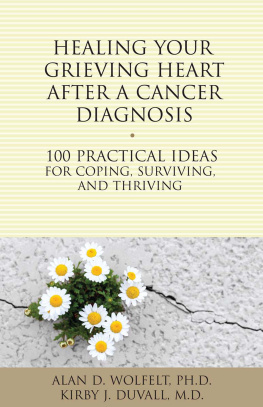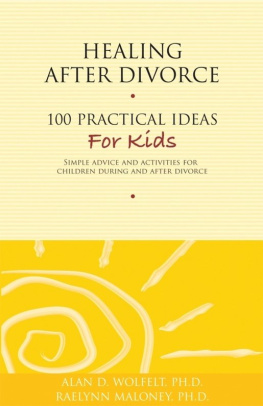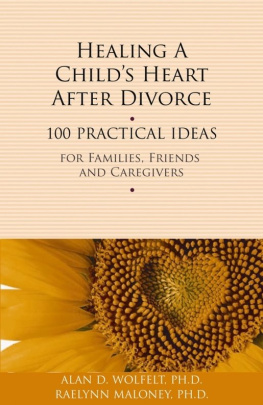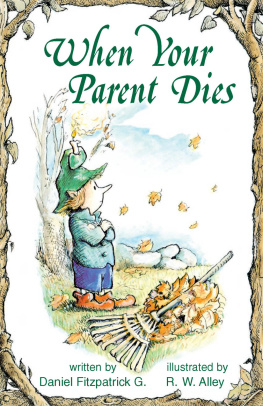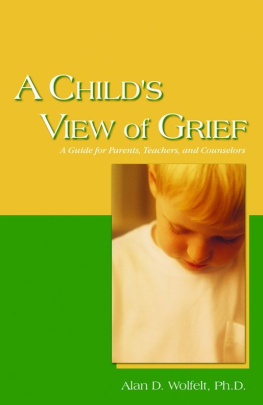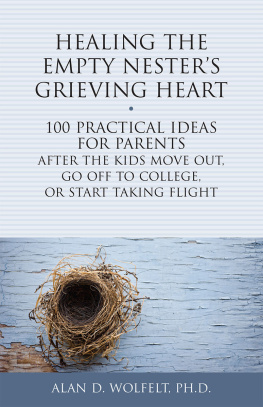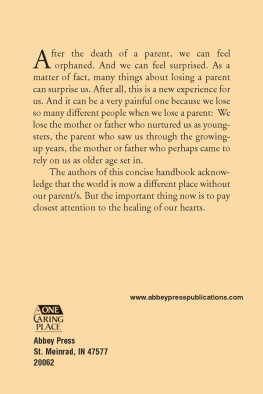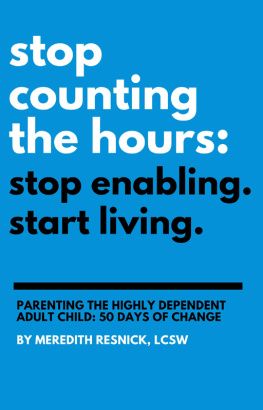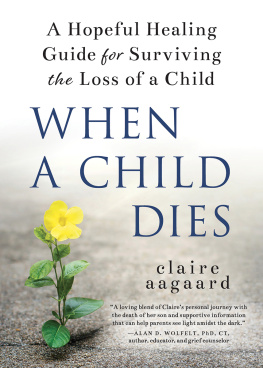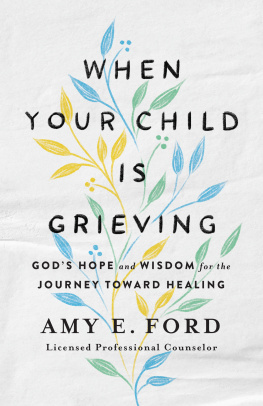A FINAL WORD
I became a man the day my father died. Nothing in my life gave me more clarity and a stronger sense of responsibility. Ive become a better lover, a closer friend and a kinder stranger.
Matthew McConaughey
The death of my father has changed me in many ways. Perhaps most of all, I have become more conscious of the responsibility I have to my own three children to strive to be a gentle, loving, compassionate father. While I understood this before, since my fathers death I more fully embrace this responsibilitythis opportunity.
The death of my father has taught me what it means to love my children and make memories with them each and every day. As my fathers child, I can now say with complete surety that I make memories with my own children by enjoying the simple things in life: playing a game together, taking a vacation get-away, wrestling, spraying each other with the hose, shooting hoops with my son, watching my daughter perform in a play, having my seven-year-old proudly tell me, Im going to be an artist when I grow up. Those are the magic moments that will live in my heart forever.
The death of my father has taught me to slow down, to enjoy the moment, to find hidden treasures everywhere. His death has invited me to live fully in the present while I remember my past and embrace my future. Yes, grief awakens us to a new sense of time!
The death of my father has taught me to seek a sense of belonging, a sense of meaning, a sense of purpose both in my lifes work and in my relationships with family and friends. His death has reminded me that there are miracles in loving and being loved.
The death of my father has also taught me that self-care is essential as I experience the ebbs and flows of my journey into grief.
While I have learned to accept outside support, Ive also learned about self-acceptance. Practicing self-care has helped me mourn authentically in ways that have helped me heal. While some people have tried to discuss or minimize my grief (after all, I am a grief counselor and write books about death and loss), I havent let them. Regardless of how many books I write and workshops I teach, I must honor the need to mourn my fathers death from deep in my soul.
Just one more thing: Right now, take a moment to close your eyes, open your heart and remember your parents special smile.
Bless you. I hope we meet one day.
THE MOURNERS CODE
Ten Self-Compassionate Principles
Though you should reach out to others as you journey through grief, you should not feel obligated to accept the unhelpful responses you may receive from some people. You are the one who is grieving, and as such, you have certain rights no one should try to take away from you.
The following list is intended both to empower you to heal and to decide how others can and cannot help. This is not to discourage you from reaching out to others for help, but rather to assist you in distinguishing useful responses from hurtful ones.
- You have the right to experience your own unique grief. No one else will grieve in exactly the same way you do. So, when you turn to others for help, dont allow them to tell you what you should or should not be feeling.
- You have the right to talk about your grief. Talking about your grief will help you heal. Seek out others who will allow you to talk as much as you want, as often as you want, about your grief. If at times you dont feel like talking, you also have the right to be silent.
- You have the right to feel a multitude of emotions. Confusion, numbness, disorientation, fear, guilt and relief are just a few of the emotions you might feel as part of your grief journey. Others may try to tell you that feeling angry, for example, is wrong. Dont take these judgmental responses to heart. Instead, find listeners who will accept your feelings without condition.
- You have the right to be tolerant of your physical and emotional limits. Your feelings of loss and sadness will probably leave you feeling fatigued. Respect what your body and mind are telling you. Get daily rest. Eat balanced meals.And dont allow others to push you into doing things you dont feel ready to do.
- You have the right to experience griefbursts. Sometimes, out of nowhere, a powerful surge of grief may overcome you. This can be frightening, but it is normal and natural. Find someone who understands and will let you talk it out.
- You have the right to make use of ritual. The funeral ritual does more than acknowledge the death of someone loved. It helps provide you with the support of caring people. More importantly, the funeral is a way for you to mourn. If others tell you the funeral or other healing rituals such as these are silly or unnecessary, dont listen.
- You have the right to embrace your spirituality. If faith is a part of your life, express it in ways that seem appropriate to you. Allow yourself to be around people who understand and support your religious beliefs. If you feel angry at God, find someone to talk with who wont be critical of your feelings of hurt and abandonment.
- You have the right to search for meaning. You may find yourself asking, Why did he or she die? Why this way? Why now? Some of your questions may have answers, but some may not. And watch out for the clichd responses some people may give you. Comments like, It was Gods will or Think of what you have to be thankful for are not helpful and you do not have to accept them.
- You have the right to treasure your memories. Memories are one of the best legacies that exist after the death of someone loved. You will always remember. Instead of ignoring your memories, find others with whom you can share them.
- You have the right to move toward your grief and heal. Reconciling your grief will not happen quickly. Remember, grief is a process, not an event. Be patient and tolerant with yourself and avoid people who are impatient and intolerant with you. Neither you nor those around you must forget that the death of someone loved changes your life forever.
WANTED: YOUR SPIRITUAL SELF-CARE IDEAS
Please help me write the next edition of this book. I will plan to update and rewrite this book every few years. For this reason I would really like to hear from you. Please write and let me know about your experience with this book.
If an Idea is particularly helpful to you, let me know. Better yet, send me an Idea you have that you think other fellow mourners might find helpful. When you write to me, you are helping me help others and inspiring me to be a more effective grief companion, author, and educator.
Thank you for your help. Please write to me at:
Alan D. Wolfelt
Center for Loss and Life Transition
3735 Broken Bow Road
Fort Collins, CO 80526
Or email me at DrWolfelt@centerforloss.com or go to our website, www.centerforloss.com .
My idea:

